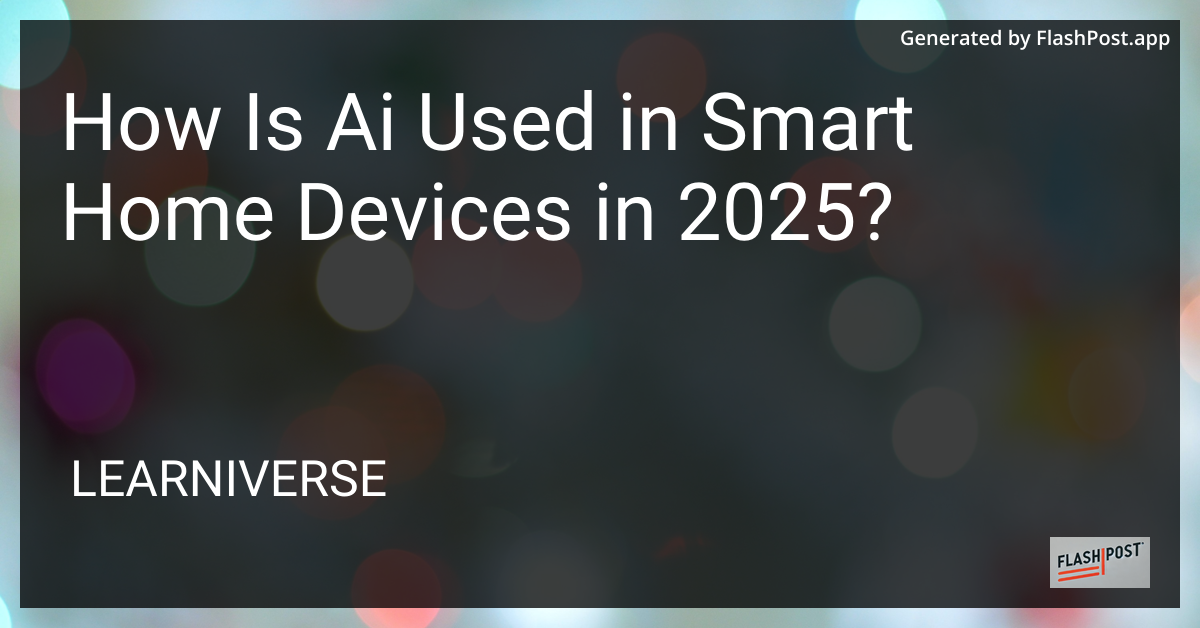How Is Ai Used in Smart Home Devices in 2025?

As we step into the year 2025, the ubiquity of Artificial Intelligence (AI) in smart home devices has transformed the way we live. This transformation is not only limited to tech enthusiasts but has become an integral part of everyday life for many households. Here’s an in-depth look at how artificial intelligence is revolutionizing smart homes in 2025.
The Evolution of Smart Home Technology
In recent years, smart home devices have evolved from simple automated systems to complex networks that anticipate and respond to human needs. The high penetration of integrating artificial intelligence has made these systems more intuitive and efficient.
AI-Powered Personal Assistants
One of the most significant advancements is in AI-powered personal assistants. Devices such as smart speakers and displays now use AI to understand and predict user preferences, offering more personalized experiences. These systems leverage machine learning to discern patterns in user behavior, making daily operations seamless.
Intelligent Energy Management
AI is pivotal in optimizing energy consumption within homes. Smart thermostats, lighting, and energy management systems use AI to learn user habits and adjust energy usage accordingly, leading to substantial savings and reduced environmental impact.
Enhanced Security Systems
Smart home security has been greatly enhanced with AI. Advanced surveillance systems use AI for real-time threat detection and facial recognition. These systems can distinguish between family members, guests, and potential intruders, significantly increasing security and convenience.
AI in Home Entertainment
AI-driven home entertainment systems are now commonplace, offering tailored content recommendations and immersive experiences. These systems analyze user viewing habits, adjusting settings to match individual preferences and moods, providing an unparalleled level of personal entertainment.
Autonomous Housekeeping Robots
2025 has seen a significant leap in artificial intelligence robotics applied to household chores. AI-equipped cleaning and maintenance robots can autonomously navigate homes, performing tasks such as vacuuming, lawn mowing, and even window cleaning with high efficiency.
Future Prospects
The role of AI in smart home devices is only set to expand. With the increasing integration of AI technologies, we can expect an even higher degree of personalization, efficiency, and convenience. As AI systems become more sophisticated, the potential for innovation in this domain is boundless.
In conclusion, AI is at the heart of the smart home device revolution in 2025. Its continuous evolution is reshaping home automation, making homes more intelligent, efficient, and responsive than ever before. As we look to the future, the possibilities that AI brings to smart homes are both exciting and transformative.